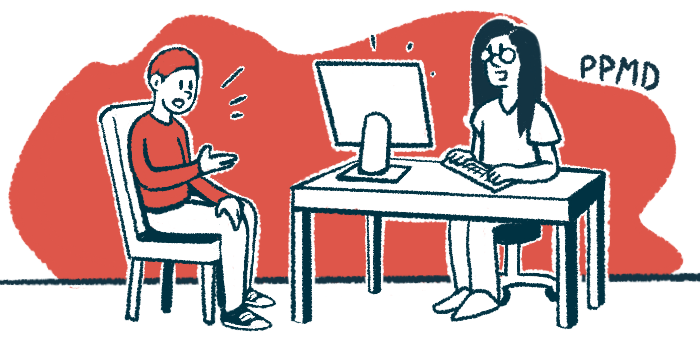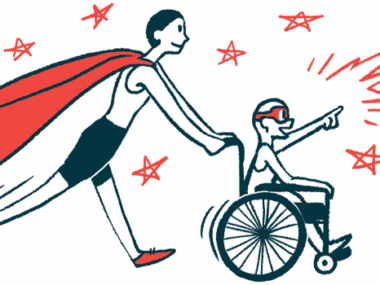PPMD 2024: Building community is vital for mental, physical health
Kozar: 'We become more powerful ... we know that we're not alone'
Written by |

Connecting with a supportive community is essential for people affected by muscular dystrophy to maintain both their emotional and physical well-being, according to Brandon Kozar, a psychologist at Nationwide Children’s Hospital.
“When we come together … something amazing happens. We become more powerful. We become connected. At the very least, we know that we’re not alone,” Kozar said during a talk at the 30th annual Parent Project Muscular Dystrophy (PPMD) conference, held last week in Orlando, Florida. “Over the last 30 years … that’s really what PPMD has actually demonstrated.”
Kozar said on his way to deliver his talk, he passed a group of boys chatting and laughing together. That childhood camaraderie is “the perfect example of ultimately what I’m trying to kind of get across” about the importance of community, he said, encouraging conference attendees to actively connect with each other.
“We survive and thrive when we feel connected to others, not when we’re alone,” he said. “The best communities readily offer and promote this type of connection. We benefit when we personally invest in each other in these communities, right? It’s this mutual thing, we invest in the community of PPMD and we get things out of it as well. That’s a wonderful, virtuous relationship.”
Kozar said “community” can mean different things to different people, but may mean a group who share attitudes, interests, and goals. He called community “a bunch of people who are alike in some way, who feel some sense of belonging or interpersonal connection.”
He said feeling like we are part of a community is vital for every person’s health and well-being, and people affected by muscular dystrophy are no exception. Humans are social animals who don’t react well when we feel isolated, and social isolation can trigger not just emotional distress, but also physical dysregulation.
Negative effects of social isolation, positive impact of coming together
“Social isolation increases risk of anxiety, depression, sleeplessness, cases of suicidal ideation, such as suicidal thoughts. Research has actually shown that social isolation, it is physically as harmful as chronic smoking,” Kozar said, adding studies using MRI scans have suggested the brain responds to feeling excluded in much the same way that it responds when the body is in physical pain.
And just as isolation can have negative effects, connection can have substantial benefits for both mental and physical health. People who report feeling a strong sense of community tend to be happier, with lower rates of anxiety and depression, and they even tend to live longer.
“Good and supportive relationships are actually the highest single predictor of happiness,” Kozar said. “Just like exclusion is associated with the pain region being activated, social inclusion is associated with the same brain reward system being activated.” Activating these brain pathways “is creating a lasting imprint in their brain that I am not alone, that there are other people that can understand and appreciate me,” he said.
Because community is so important, Kozar said he recommends people try to take steps to build a sense of community for themselves. Even small, daily interactions, such as offering a smile to someone you don’t know, can have a major effect. “Just acknowledge people,” he said. “Simple little things that we do that just lets people know that, hey, we’re in this together, this thing called life. We’re in this together, this PPMD community. It’s kind of cool, it’s pretty amazing.”
He also encouraged engaging in giving without expecting anything in return, noting this type of behavior can activate pleasurable reward pathways in the brain. “Doing something kind for somebody else, in which you do not feel guilt-stricken or forced into doing, is actually very rewarding to the brain,” he said. As a small example, he recounted how good it feels to pay for someone else’s meal at a drive-thru.
In order to build a positive and productive community, Kozar emphasized that it’s necessary to acknowledge that everyone is imperfect, conflicts and hurt feelings will occur as they do in any relationship, so it’s vital to give grace and accept everybody’s differences. That doesn’t just mean being accepting of others; in order to be a healthy part of the community, it’s just as important to accept ourselves, Kozar said.
“Just like you need to have compassion for others, remember to turn it on yourself,” he said.
Note: The Muscular Dystrophy News Today team is providing virtual coverage of the Parent Project Muscular Dystrophy Annual Conference (PPMD) June 27-29. Go here to see the latest stories from the conference.





